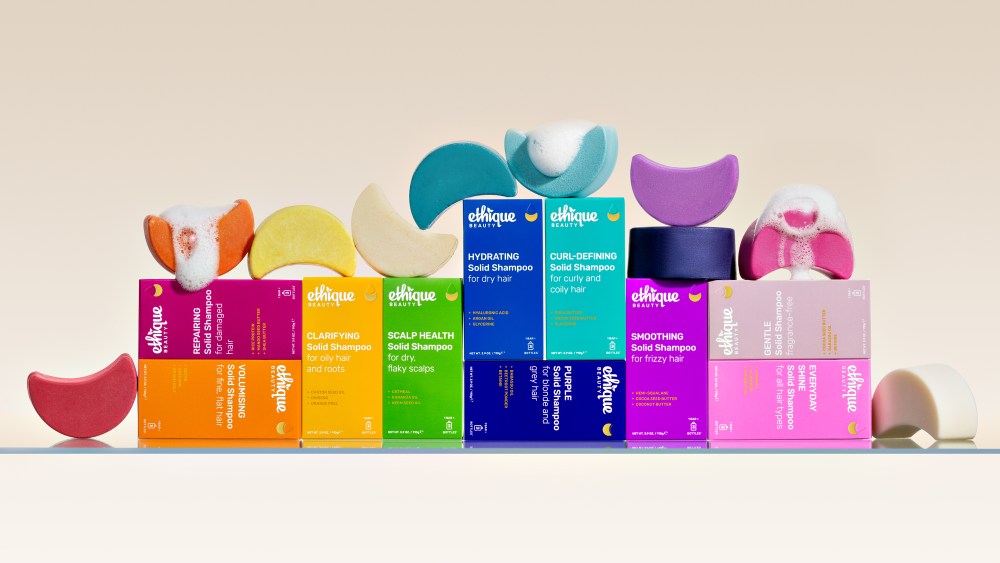With a new look and its first major retailer expansion on deck, Ethique is on a mission to take bar-form beauty mainstream.
The plastic-free brand, which was founded in 2012 in New Zealand by Brianne West and acquired for an undisclosed sum in 2020 by Bansk Group (also the owner of Amika and Eva NYC), quickly became a favorite among sustainability-minded shoppers via its direct-to-consumer and Amazon channels, where it has amassed tens of thousands of five-star reviews.
Now the brand is looking to broaden its reach.
“It’s not just this group of people who are coming in through the sustainability sector that are interested in this,” said Ethique’s global president Erica Cocilova, who was previously chief marketing officer at Briogeo. “If you are providing something that is, first and foremost, effective, and also has sustainability and clean credits — there’s actually a much wider consumer group here that is unmet.”
To that end, the digitally native brand is expanding its brick-and-mortar footprint beyond grocery aisles and into all 1,400-plus Ulta doors this month. While Ethique offers a range of hair, body and facial skin care bars, its rebrand has focused on its hero hair care offerings, 14 of which will enter Ulta in-store and online.
“We know Ulta is a hair care destination, and it also leans heavily into their brands in the masstige space, which we fit well into, where other retailers can skew heavily in one direction or the other,” Cocilova said.

Ethique’s crescent-shaped shampoo bars, $17 each.
courtesy
The brand’s revamped shampoo and conditioner bars retail for $17 each, coming in different colors indicating the concern they address — yellow bars designate clarifying capabilities; purple for toning; blue for curl-defining, and so on. The new packaging highlights active ingredients — from rice protein to squalane to oatmeal and more — on each box, and because Ethique eschews water in its formulas, one bar purports to be the equivalent of three or more bottles of shampoo and conditioner.
“We’re not just competing against other bars. There might be a misconception that this format is trading down, but if it’s done well, it’s actually trading up because it’s packed with actives,” Cocilova said, adding that while Ethique is “growing like crazy” at grocery stores like Wegmans and Sprouts, “that’s not just where we want to be, and it’s not where people who we believe are looking for this solution are shopping.”
Muffy Clince, Ulta’s senior director of emerging brands and initiatives, said in a statement: “Ethique has created efficacious formulas that are accessible and responsibly sourced; we know that our guests will be delighted to see the brand on our shelves.”
Though Cocilova did not specify sales expectations for the retail expansion, industry sources estimate Ethique could do around $15 million in first-year sales at Ulta.
“The number-one thing we’ve done to change consumer perception is treat Ethique like a hair care brand, like a beauty brand,” said Cocilova, adding that the brand invested in third-party clinical trials for the first time in order to support its claims, and is investing further in influencer marketing in order to boost Ethique’s profile among typical beauty shoppers.

Ethique
courtesy
“We’ve never worked with hair care influencers before — we only worked with sustainability influencers, but not anymore. All of these changes we’ve made have been to make it clear that we are a hair care player. We’re putting the beauty creds first.”
The brand is staying true to its roots, too: in fact, the rebrand brought Ethique’s B Corp Certification score up to 130 from its previous 117.
“We’re focused on continuing our sustainable growth — sustainable in both senses of the word.”

